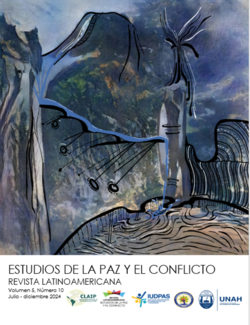The Brazilian participation in United Nations peacekeeping operations (2003-2022): is the strategic environment a priority?
DOI:
https://doi.org/10.5377/rlpc.v5i10.17676Keywords:
Peacekeeping Operations, strategic environment, United Nations, BrazilAbstract
This article presents a mapping of Brazilian action in United Nations Peacekeeping Operations (PKO) between 2003 and 2022, applying quantitative methodology to analyze twenty documents provided by the UN and compiled by the researchers. First, we defined the concept of Brazilian Strategic Environment (SE) and analyzed the most important points of security and defense in Brazil in our recent history, focusing on South America, South Atlantic, Sub-Saharan Africa and Antarctica, from a literature review. The objective of this article is to analyze the information obtained about Brazilian participation in PKO, how many people participate in these operations, what are the most common types of shipping and where these operations in which the country participates are located. Using these data, we intend to contrast the missions with each other and with the idea of Brazilian SE. It was possible to conclude that in relation to Brazilian engagement in PKO, the SE is not a priority for sending in intensity, however, the country manages, over time, to be minimally present in several PKO within the SE, with an extremely low intensity degree of involvement.
Downloads
390
HTML (Português (Brasil)) 37
XML (Português (Brasil)) 14
EPUB (Português (Brasil)) 62
Downloads
Published
How to Cite
Issue
Section
License
Copyright (c) 2024 Latin American Journal of Peace and Conflict Studies

This work is licensed under a Creative Commons Attribution 4.0 International License.
The journal's contents are published under a Creative Commons Attribution 4.0 license (CC BY 4.0). This license allows third parties to share (copy and redistribute the material in any medium or format) and adapt (remix, transform and create from the material for any purpose, including commercial), as long as the authorship and first publication in this journal (Revista Latinoamericana Estudios de la Paz y el Conflicto, Universidad Nacional Autónoma de Honduras - Consejo Latinoamericano de Investigación para la Paz, DOI of the work) is acknowledged, a link to the license is provided and it is indicated if changes have been made to the original. The terms of the license are available online at http://creativecommons.org.




